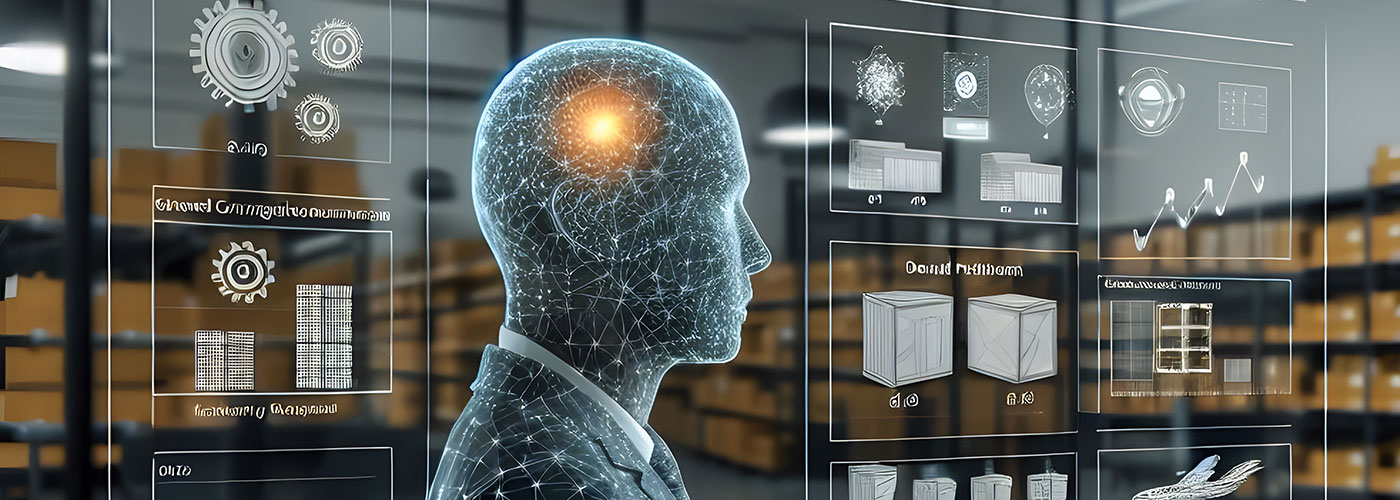While the public is getting acclimated to flashy advancements in artificial intelligence (AI) and machine learning (ML), these technologies are nothing new to the legal industry. Both have been mainstays over the last few years — especially within the realms of contract review and in predictive analytics around judge rulings and the effects of precedent.
The debut of tools such as ChatGPT, DALL-E, Bard — and yes, even the “new” Bing — presents another suite of AI-driven possibilities beyond these tried and true use cases. Unsurprisingly, they have inspired breathy predictions about what these advancements mean for the future of many sectors, including the law. To be frank, those predictions are not precisely pie high in the sky; the promise of this technology is incredibly ripe for upending how legal departments approach contract lifecycle management (CLM).
While we are still years away from seeing these advancements ready for launch, they do introduce a host of possibilities that hold promise and potential for reshaping traditional approaches for CLM and the software that drives them. Several possibilities where this technology can come into play to revamp CLM are presented below.
1. CLM deployment management and planning
Behind its comical poems and research regurgitations, ChatGPT represents the immediate future of similar features we could expect around CLM programs in the short term. Having a virtual, all-knowing assistant to troubleshoot significant issues will not just be a boon to legal departments; it will help other departments better engage with enterprise CLM software. Divisions that stand to benefit from AI’s facilitated tools include procurement, contract management and sales-focused divisions.
How would a ChatGPT-like tool impact this? It can reshape how contract managers become more efficient in their day-to-day work. After all, the contract manager’s role is to review and understand agreement changes that arise from the negotiation process, along with communicating the ramifications of those changes to all parties involved. A mirror ChatGPT feature could help managers ferret out fundamental changes like current AI programs and offer reasoned, precedent-based analysis. Such a workflow would be instrumental in helping contract managers present complex findings in a clear, cogent and digestible manner.
These tools will be capable of parsing through contracts and churning out improved rights summaries. Rather than pointing out important redlines, AI modules can offer immediate, easier-to-understand narratives that walk stakeholders through the implications of rights changes. Next-generation-empowered tools could help corporate decision-makers make informed choices around negotiation strategies and agreements by trimming down the legalese and hitting on the key upsides and downsides. All without the need for an attorney interpreter.

Through in-depth machine learning (ML) of essential cases and precedents, ChatGPT-like tools can even tread into territory reserved for in-house counsel. How? By distilling risk analysis into actionable, easy-to-understand advice and laying out the benefits and fallbacks of certain negotiation strategies and push-back decisions. These advancements would empower procurement, sales, and business divisions to move the ball forward with certain deals and reduce the involvement and expense associated with engaging legal departments.
2. Improving communication with contract parties
Another area where ChatGPT-like technology could revolutionize CLM is how the software communicates with contract decision-makers. The technology is at such a level that contract owners could eventually query the CLM software for guidance for the next steps in software implementation, workflow improvements, cost mitigation decisions, clause playbook execution and redline automation. AI is also advanced enough to help decision-makers chart their courses of analysis; rather than systematically going through Steps A-D to reach a conclusion, ML-trained AI systems can help decision-makers skip or fast-track some of the steps in between if they create bottlenecks or are simply unnecessary, repetitive, costly or onerous. The benefit? It allows CLM software to transcend its oft-used purpose as a repository into a tool that helps owners make better, quicker decisions around their contracts. As a result, stakeholders can better understand a counterparty’s requested changes in plain English, adjust their strategies, finalize deals and agreements more quickly, and — most importantly — to collect more revenue more speedily.
While some CLMs are experimenting with features that help achieve this goal — including some that are starting to integrate the GPT framework — the applications and use cases around these AI features amount to experiments in the sandbox. Still, these communication-related features can help achieve shared directives from various C-Suites around ensuring the contracting process is as swift and cost-efficient as possible.
3. Steering technical admin tasks
Change management is critical in any implementation to ensure success from start to finish. However, support teams in customer-centered organizations today struggle with understaffing and a shortage of experience around CLM implementations. A ChatGPT-like tool can help stakeholders address these issues and bridge gaps to ensure airtight execution of CLM implementations.
A ChatGPT-like tool can allow support staff to interact with the CLM’s AI, which can organize answers and direct troubleshooting and diagnosticating on the fly after being trained on ever-growing data pools surrounding customer deployments and how different CLM tools approach different types of CLM issues. In teeing up tailored answers, the platform would help customers and support teams tackle common and complex problems without sending tickets to the CLM vendor’s support team.
A ChatGPT-like tool will revolutionize how in-house teams approach help issues, potentially making frequently asked question pages and the status quo way teams ask for vendor assistance irrelevant. While people power would still be involved to some extent in creating CLM materials and overseeing deployments, a ChatGPT-like module could handle much of the heavy lifting, freeing more time for human personnel to address the more complex intricacies of CLM deployments. Based on the technology’s trajectory, it would not be surprising if GPT-like features replace level 1 and 2 human support staff. At the very least, these functionalities would encourage competition among vendors looking to offer streamlined and effective technical support avenues.

4. Optimizing CLM processes and decision-making
With that said, perhaps the most intriguing possibility for CLM software is how AI modules could eventually predict outcomes and provide recommendations — all of which, right now, fall within the domain of human intelligence. While these features would not necessarily replace human attorneys, advancements in AI and ML technology could make deep collaboration in this area a realistic possibility.
Practical legal analysis hinges on effective pattern searching and low-risk outcome plans — both of which fall within what machine learning does best. It also helps that machine learning can quickly get up to speed on documents as predictable and standard as master service agreements (MSAs). Once a ChatGPT-like module feels at home in the realm of a company’s contracts, it can go a long way toward helping lawyers and lay users avoid the hard structure around a regimented CLM workflow. Instead, the technology could be capable of marching to its own drumbeat, abandoning the traditional workflow path that every CLM MSA-oriented setup wizard follows and finding more efficient roads to resolving questions about certain agreements or reaching specific outcomes and solutions. In other words, it will offer tailored, adaptable guidance to each client, all while not forcing them into an inefficient, cookie-cutter workflow for finding the same answers.
What would these developments mean for in-house attorneys and outside counsel?
The potential a ChatGPT-like tool can bring to CLMs can naturally cause trepidation among in-house and outside counsel. If AI and ML can leverage logic and pattern recognition to develop cogent strategies, would that endanger the legal function’s role for the enterprise? Not at all.
If anything, increased adoption of AI tools will likely encourage legal functions, groups and outside firms to shift their work to objectives more strategic to the organization than a routine NDA or MSA review. For example, turning over day-to-day contract management to AI would give in-house and outside counsel more breathing room to work through time-sensitive mergers and acquisitions, complex litigation and discovery issues, and other questions and problems impeding an organization’s business objectives.
It can also help even the playing field at the negotiation table, especially for smaller organizations that lack dedicated in-house counsel or the resources to engage outside counsel. These types of businesses can turn to an outside firm to create the structure and details of the company’s agreement templates, and use AI-based outcome predictions, redline suggestions and risk-based analysis to guide responsive strategies for contracts and agreement renegotiations. Even with these capabilities, a GPT-like module would not eliminate the need to have someone on staff with contract management experience to address any AI-related blind spots.
Without a doubt, GPT and machine learning would reshape how in-house and outside counsel interact with the organizations they work with. However, it would do so in a way that allows the company to use its legal resources toward complex strategic activities relevant to a client or company’s success. In my view, this would be a positive development for lawyers, allowing them to shed their reputation as cost centers for companies and offer long-lasting value by focusing their efforts on high-priority legal work.
What the future of AI & ML holds
In all, heuristic programming, AI and ML still have a ways to go before they can reach any of the milestones and use cases mentioned above. However, the rate at which these technologies are evolving may make these projections more grounded in reality sooner than we think. While the role of the lawyers, contract managers, and CLM software itself may change, the result will give rise to more efficient ways each component can create value for the enterprise. It’s a trend becoming ever-more crucial as stakeholders continue finding themselves deciphering the sophisticated CLM software analytics and dashboards their vendors introduce.
Should ChatGPT signal the future of artificial intelligence, AI and ML can be the glue that can close the gaps and misunderstandings arising from CLM, maximizing the role of these products in the process. In the end, contract lifecycle management would transform from a tiresome exercise into an automated, more efficient component of an enterprise’s business dealings.

This article by Jim O’Hare, VP of CLM of LegalEase Solutions, was published on July 25, 2023, on Law Technology Today







